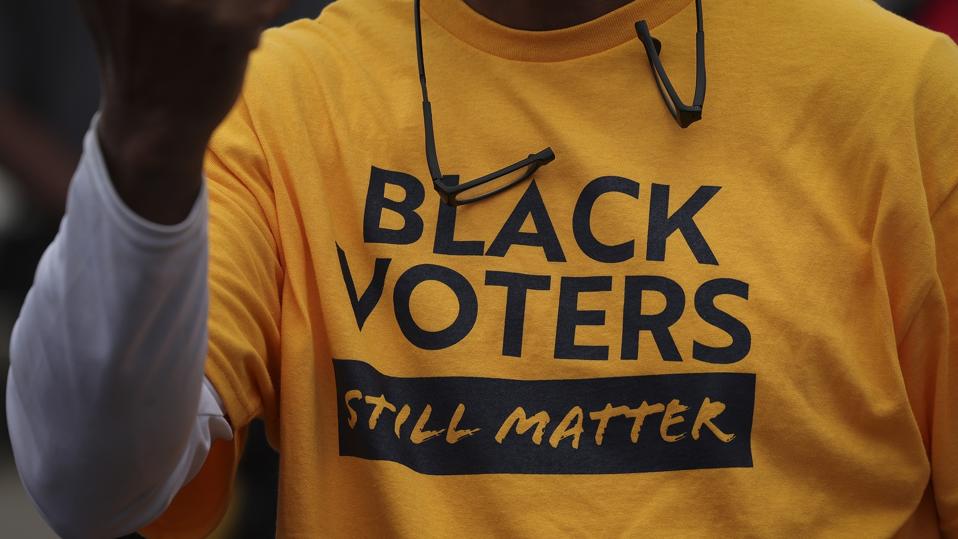Swing states, pivotal in determining the outcome of U.S. presidential elections, play an outsize role in shaping national policy directions that impact marginalized and low-income communities, including Black Americans. As we approach the 2024 race, the influence of these battleground states—Michigan, Pennsylvania, Wisconsin, Georgia, Arizona, and Nebraska—takes center stage, highlighting key issues such as economic reform, healthcare accessibility, education, and social justice.
In these critical battlegrounds, the intersection of economic policies, healthcare, education, and environmental justice with electoral outcomes is starkly evident. For instance, the Rust Belt’s economic shifts have left many communities, especially those with high concentrations of Black Americans, grappling with unemployment and underinvestment. The legacy of manufacturing declines in Michigan, Pennsylvania, and Wisconsin underscores the urgent need for policies that redress economic inequality and promote job creation in sectors resilient to globalization and automation.
In states like Georgia and Arizona, the demographic landscape is undergoing significant transformation, underscored by notable growth in Black and Hispanic populations. This evolution is elevating the importance of their votes and concerns, bringing issues like racial justice, police reform, voting rights, and immigration policies to the forefront of the electoral discourse. Such developments are challenging candidates and political parties to confront systemic inequalities and advocate for policies that foster inclusivity.
Nebraska’s unique Electoral College distribution system, allowing for a nuanced representation of voter attitudes, and Georgia’s recent electoral reforms demonstrate the importance of local dynamics and the power of minority engagement in influencing the national political landscape. Black Americans’ involvement in the electoral process, including voter mobilization and efforts to combat voter oppression, demonstrate the impact these efforts can have on shifting political priorities and outcomes.
The policy directions taken in swing states carry high-stakes implications for Black Americans. Economic policies aimed at closing wage gaps, healthcare reforms to broaden access and enhance affordability, and education strategies to reduce achievement disparities are essential for uplifting Black communities. Furthermore, the environmental justice movement, gaining traction in swing states, is tackling the unequal burdens of pollution and climate change faced by Black Americans, advocating for policies that ensure clean air, water, and a sustainable environment for every community. The political mobilization of Black American voters in battleground states not only influences electoral outcomes but also serves as the catalyst for more extensive social and political shifts. Efforts to combat voter suppression, expand access to the ballot box, and ensure fair representation are necessary to strengthen democracy and enact policies that mirror the wide range of interests of all Americans.
Full stop, the role swing states play in shaping the outcome of the 2024 Presidential Election, particularly in terms of policies that affect Black Americans, cannot be ignored. These states are more than political battlegrounds; they are the stages upon which the values of democracy are tested and displayed, highlighting the critical need for policies grounded in equity, justice, and inclusion. The active engagement of Black Americans in these pivotal states, demonstrating their capacity to influence outcomes, highlights the essential nature of a democracy that genuinely listens to and values each voice. By deepening our understanding of the complex relationship between swing state dynamics and national policymaking, we edge closer toward a future that not only acknowledges disparities but actively addresses them to pave the way for a more equitable and representative America.

